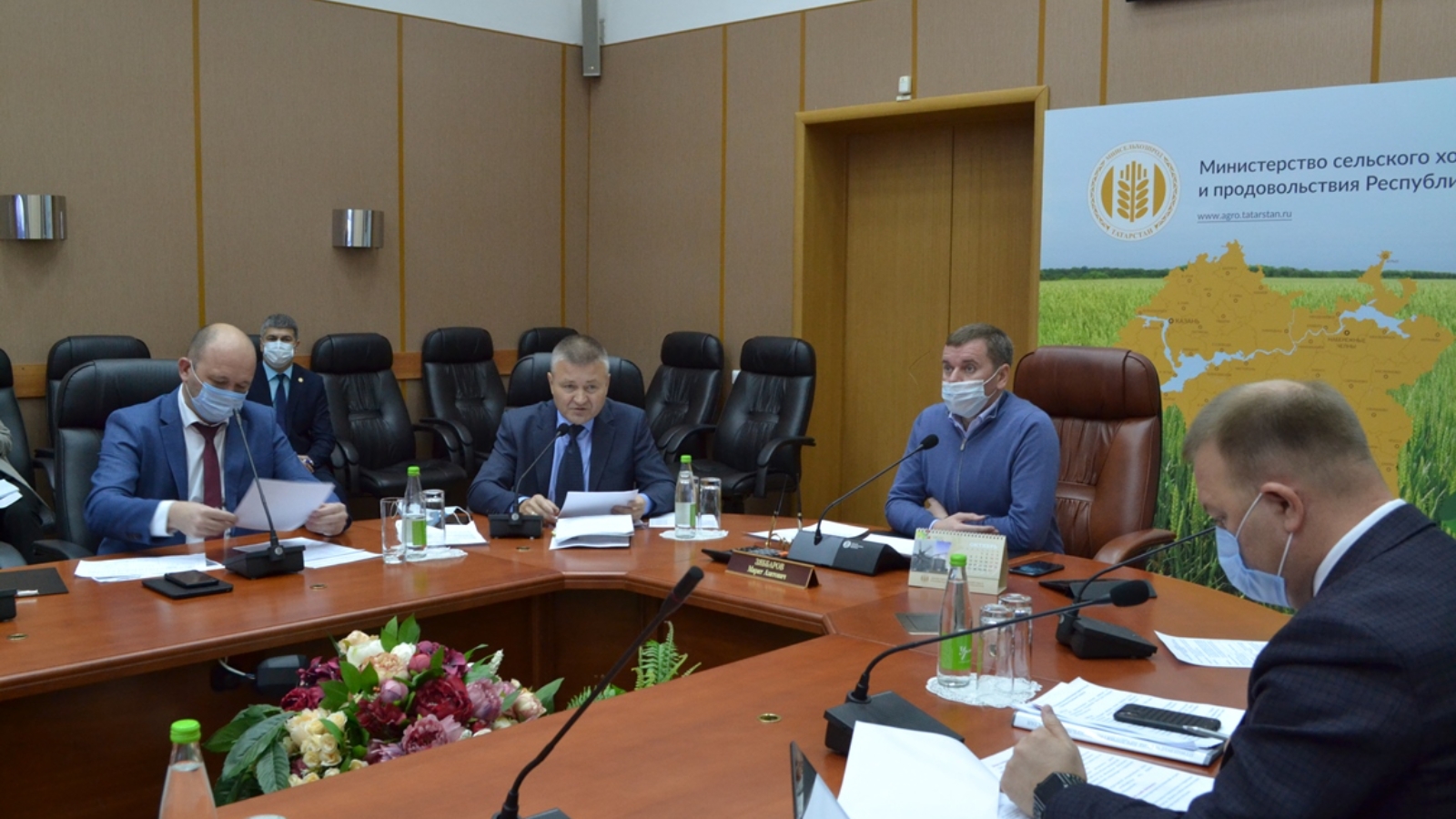The Ministry of Agriculture and Food of the Republic of Tatarstan informs about the need to strictly adhere to measures to prevent the spread of highly pathogenic avian influenza

Today, the Ministry of Agriculture and Food of Tatarstan, together with the Rosselkhoznadzor Administration and the Main Veterinary Directorate, held a meeting of the republican headquarters to prevent the spread of highly pathogenic avian influenza. All municipal districts of the republic joined the event in the video conference mode.
On October 22, the diagnosis of avian influenza was confirmed in two districts of the Republic of Tatarstan: Muslyumovsky and Drozhzhanovsky. Earlier, an outbreak of avian influenza was detected in the Buinsky district. All cases occurred in the districts of the republic bordering other regions. The reason for the infection was the acquisition of poultry from other regions by farmers without necessary veterinary documents, as well as the access of a bird to a natural reservoir, which was also inhabited by wild waterfowl. Wild waterfowl and synanthropic birds are relatively resistant to highly pathogenic avian influenza and are the main carriers of the infection.
At the moment, the entire range of measures to eliminate the infection is being carried out in epizootic foci. The bird is killed by a bloodless method and burned. Thus, in the Buinsky district, on the peasant farm of Mudaris Khairullov, 920 heads of geese and 117 heads of ducks were destroyed.
All organizational, economic and veterinary and sanitary measures are carried out in accordance with the Order of the Ministry of Agriculture of Russia dated March 27, 2006 No. 90 "On approval of the rules for combating avian influenza."
Citizens, owners of personal subsidiary farms, heads of poultry enterprises, should be especially vigilant today.
The spread of the virus in buildings, poultry farms, yards, live poultry markets and other objects is possible through non-disinfected poultry products (meat, eggs, down and feathers), feed, water, droppings, inventory, as well as vehicles and service personnel. The main routes of transmission of the pathogen are through food or water, as well as through direct contact of susceptible livestock with infected birds.
PREVENTIVE MEASURES:
Deputy Prime Minister of the Republic of Tatarstan - Minister of Agriculture and Food of Tatarstan Marat Zyabbarov announced preventive measures that must be strictly observed:
- closed mode of the enterprise;
- to ensure the continuous operation of disinfection barriers, sanitary inspection rooms, disinfection equipment;
- not to allow workers of poultry farms and enterprises to visit the areas affected by avian influenza;
- take measures to prevent the wild birds flying on the territory of poultry farms;
- to regulate the number of wild migratory waterfowl near the enterprises;
- in case of suspicion of a disease, provide immediate information to the Veterinary Directorate;
- to ensure the prevention of illegal import of live birds, hatching eggs, feed and technological equipment.
In private household plots and private farms, traditionally, the time for slaughtering poultry begins in early November with the onset of cold weather. To prevent infection, it is recommended, if possible, to start slaughtering as soon as possible.
“To prevent the spread of the virus, you need to react in time and approach the situation with full responsibility,” said Marat Zyabbarov, and instructed the Rosselkhoznadzor Administration and the Main Veterinary Directorate to take the issue under special control.
Let us remind that the poultry population in Tatarstan is over 18 million. Highly pathogenic avian influenza is a danger to poultry and causes death in almost 100% of cases. It is not dangerous for humans, but people can be carriers of the disease.